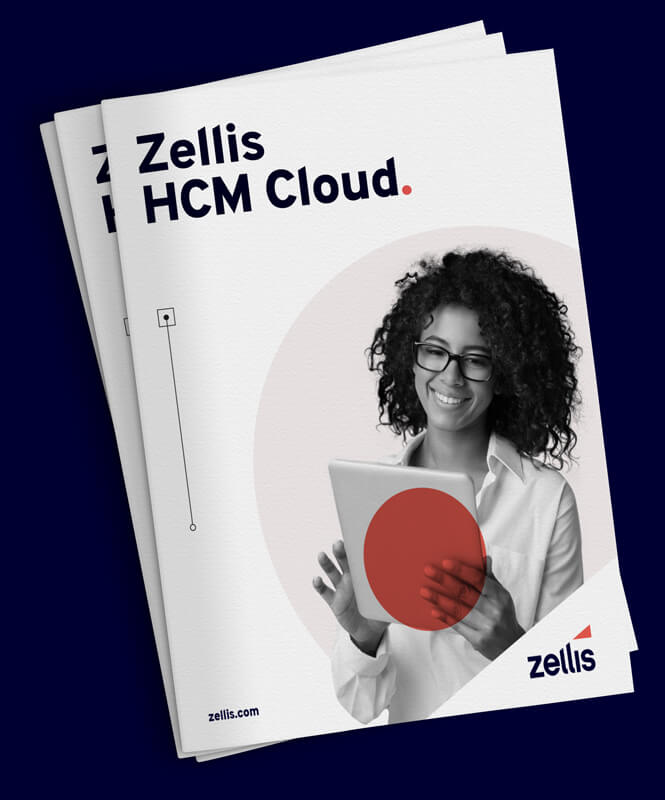Money worries remain one of the most pressing concerns for employees today. Research shows that nearly 4 in 10 people feel stressed by their finances, and financial worries are especially high in younger adults, with 63% of 18-34 year olds expressing financial anxiety. These numbers reflect the everyday reality of colleagues balancing rising living costs, family commitments, and the uncertainty of unexpected expenses.
For CPOs, this means that financial wellbeing is no longer a “nice to have.” It is central to engagement, productivity, and retention. When employees feel secure in how they manage their money, they bring more focus and energy to work.
Earned Wage Access: Flexibility with responsibility
1 in 10 UK employers are supporting their employees’ financial wellbeing through Earned Wage Access (EWA) schemes – the ability for employees to access a portion of wages they’ve already earned, ahead of the standard pay date. It is not a loan, nor is it credit. Instead, it provides flexibility and reassurance at moments when cash flow becomes difficult.
Not all financial wellbeing solutions take the same approach. Some providers in the market now offer additional services such as short-term loans. At Zellis, with Hastee, our focus remains firmly on enabling employees to access a portion of the money they’ve already earned, ahead of payday.
But why? Increasingly, many organisations are moving from weekly or fortnightly pay runs to monthly cycles, often as part of efficiency drives or wider payroll transformation programmes. While this shift can deliver clear benefits for employers, it can also create challenges for employees who are used to managing their household budgets more frequently. EWA, along with real-time payroll, helps bridge that gap, providing reassurance and stability without the need for credit.
Naturally, with flexibility must come responsibility. The most effective Earned Wage Access programmes are carefully designed with built-in safeguards to prevent misuse and to ensure that the benefit contributes to long-term wellbeing, not short-term strain.
Responsible design: Safeguards that protect wellbeing
When choosing an Earned Wage Access provider, CPOs should look for features that turn financial flexibility into genuine support:
- Drawdown caps – Employees should only be able to access a proportion of their earned pay (for example, up to 50%). This ensures sustainability and avoids the risk of pay cycles becoming unmanageable.
- Frequency limits – Restricting the number of withdrawals per pay period helps prevent over-reliance and encourages considered use.
- Transparency and real-time tracking – Clear dashboards show what has been withdrawn, and how it affects the next payslip, giving employees the confidence to plan ahead.
- Seamless payroll integration – When advances are automatically deducted on payday, it reduces the chance of errors and minimises administrative effort for HR teams.
Discover how Zellis and Hastee embed these safeguards.
Together, these safeguards help ensure Earned Wage Access does what it is intended to do: provide relief from financial stress, not fuel further worry.
A framework for trust: the EWA Code of Practice
In the UK, the EWA Code of Practice sets clear commitments for responsible Earned Wage Access. These include designing products that deliver fair value, communicating transparently, supporting vulnerable consumers, and undergoing independent assurance assessments every two years.
For employers, the Code is an important benchmark. It reassures CPOs that, by working with providers who comply, they are offering a benefit that is safe, ethical, and independently reviewed.
At Zellis, we’re proud that Hastee is among the providers adhering to this Code.
Creating a culture of trust, not surveillance
It’s important to note that employers should not seek to monitor or “spot” financial distress at an individual level. Money is deeply personal, and wellbeing support must always respect privacy. Instead, the role of HR and leadership is to create an environment of trust where employees feel able to seek help if they choose.
This can be done by:
- Providing self-service tools so employees can track and manage their own usage with full transparency.
- Offering opt-in coaching or learning opportunities for those who want them.
- Equipping managers with guidance on how to hold sensitive, supportive conversations – always confidential, always without judgement.
A simple phrase like “You’re not alone” can make the difference between an employee carrying stress silently and one who feels supported.
Why financial education matters just as much
Access alone is not enough. Without guidance, even the most responsibly designed Earned Wage Access programme can risk being used in ways that don’t truly support long-term financial health. That’s why financial education should sit at the heart of any financial wellbeing strategy.
Effective education is about equipping people with practical, relatable tools that help them feel more in control. For example:
- Budgeting workshops: tailored to everyday scenarios, such as balancing regular bills with unexpected expenses, can help employees feel less anxious about month-to-month planning.
- Savings and emergency fund goals: with simple digital tools or workplace competitions, encourage employees to put aside small amounts regularly, building a safety net over time.
- Peer-led sessions: where colleagues can share their own financial journeys anonymously, help reduce stigma, and normalise conversations around money.
In this way, education transforms flexible pay from being a short-term option into a foundation for longer-term resilience.
Bringing it all together
CPOs today are balancing multiple challenges: supporting employees through the cost-of-living crisis, retaining key talent, and sustaining organisational performance. Financial wellbeing is a critical lever in this equation.
Earned Wage Access, when delivered responsibly and in line with the Code of Practice, can be a powerful part of the solution. Combined with meaningful financial education and a culture of trust, it allows employees to feel more secure, more confident, and better able to focus on the work that matters.
At Zellis, we are committed to ensuring that flexibility and responsibility go hand in hand.
Conclusion: more than a stop-gap
When thoughtfully designed, Earned Wage Access has the potential to be far more than a short-term solution. It can provide employees with flexibility, and reassurance during times of financial pressure. For CPOs, it represents an opportunity to offer a benefit that not only addresses immediate needs but also contributes to the long-term resilience of the workforce.
Crucially, success lies in balance. Earned Wage Access should always be accompanied by education, transparency, and strong governance. By embedding these principles, and by choosing providers who commit to the Earned Wage Access Code of Practice, organisations can be confident that their financial wellbeing initiatives are genuinely safeguarding employees rather than unintentionally creating risk.
Ultimately, supporting financial wellbeing is about building trust. It’s about recognising that money worries are human worries, and that by helping employees to feel more secure, leaders can unlock greater engagement, loyalty, and performance. In this way, responsible pay access becomes not just a financial tool, but a powerful driver of culture, wellbeing, and organisational success.
Get in touch with Zellis today to help your organisation support responsible financial wellbeing.









